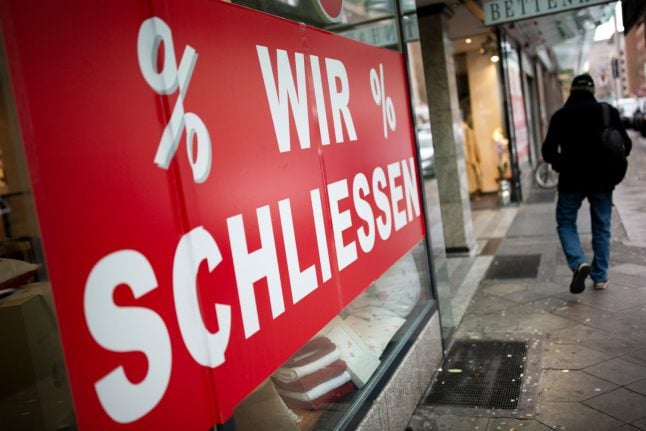Scholz, the vice Chancellor of Germany, also said he was expecting the economy to have recovered from the virus shock and returned to pre-crisis levels “by the end of next year or the beginning of 2022”.
“Next year we will continue to be forced to suspend the debt rule and spend considerable funds to protect the health of citizens and stabilise the economy,” Scholz said in an interview with the Funke media group, referring to Germany's cherished policy of keeping a balanced budget.
Scholz already plans to borrow around €218 billion ($258 billion) this year to help pay for a huge rescue package to steer the country through the coronavirus-induced downturn, blasting through a financial crisis-era “debt brake” written into the constitution.
The government has pledged over a trillion euros in aid to shield companies and citizens in Europe's top economy from the pandemic fallout, including through loans, grants and subsidised shorter-hours programmes.
READ ALSO: Is Germany doing enough to ensure small businesses survive the pandemic?
Scholz nominated in race to succeed Merkel
Germany's centre-left Social Democrats (SPD) have nominated Scholz to lead them in the race to succeed Angela Merkel as Chancellor in next year's federal election.
Buoyed by his handling of the coronavirus pandemic, Scholz is now the SPD's most popular politician, according to national polls.
Europe's top economy was hit less hard by the coronavirus than its neighbours, but still saw its GDP fall by 10.1 percent in the second quarter after a decline of two percent in the first.
Germany's previous record for a quarterly GDP drop was 4.7 percent in the first quarter of 2009, after the financial crisis of 2008.
READ ALSO: What you need to know about Germany's new coronavirus aid



 Please whitelist us to continue reading.
Please whitelist us to continue reading.
Member comments